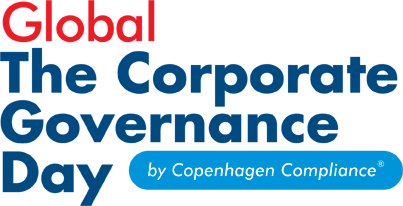We celebrate The Annual Global Corporate Governance Day on 14th September because, in 2014, The Financial Reporting Council published the updated version of the UK Corporate Governance Code, which has become the global gold standard.
During The Global Corporate Governance Day, this year, we dedicate the discussions on Sustainable Corporate Governance to ensure that companies create long-term social value and the current state of global corporate governance that focus on beneficial Owners, Board of Directors Chairmen, CEOs, and stakeholders of businesses. In short, all participants for whom improving the system of corporate governance is a relevant topic related to the roles, company structure, and the Governance environment.
Current challenges related to Sustainable Corporate Governance.
Since Lord Cadbury in 1992 Introduced the first report from The Committee on the Financial Aspects of Corporate Governance Corporate to address the continuing concerns on financial reporting and accountability standards. Since the,n the Governance recommendations have had multiple definitions and interpretations with their peculiarities depending on the country, culture, and corporate conduct.
The level of good governance in the company depends on the significance and involvement/engagement of the owner or management in the involved in the business’s operations.
The priorities
- Increasing the predominant role of the Board of Directors
- Attracting professional independent directors who can compensate for any lack of business expertise.
- We are improving the methodological Governance framework.
- List the account of Governance objectives
The Global Governance Day will address the following issues and questions:
- How can Good Governance increase the investment attractiveness of a business and market cap?
- How can management aim to create a transparent, open, and consistent system of corporate governance?
- How can the Board and management support the balance between technical development and financial attractiveness for sustainable performance, innovation, and business development?
- How can the Board of Director’s purpose, chairman’s leadership, agendas and meeting formats be effective and develop group dynamics, shared values and personalities?
- Scenario: If an overly charismatic CEO fails to develop a strong team of board members and managers, what are the KPIs for training successors, complete with strict time frames, and monitoring progress at each Board meeting.
- What are the role of the Board of Directors, the function of the chairman, and the Board’s committees:
- What are the new structures and approaches to be developed in fighting the global challenge of gender inequality and support diversity?
- What is the most under-exploited resource for the economy and society?
- How can discriminations, ability to reconcile work and family life, drawing from the full pool of available skills
- Improving Boards’ diversity as a common recognition is that a more diverse board brings a broader range of perspectives, insights, and views concerning the organisation’s issues.
- How to foster the right selection process and to define the suitable profiles not only to fulfil the legal requirements but to respond to the specific needs of the companies:
- What are the internal and external driven forces for directors’ selection?
- How can the chairman decide the boards’ composition?
- Should the spirit of the fit & proper approach inspire listed companies as well?
- Should there be a specific process for an independent director?
- Can “good governance” be defined as shifting key decision-making powers from the Board to shareholders:
- Ex-ante as well as ex-post voting by shareholders of respectively the remuneration policy and its application.
- To give a right to identify shareholders to financial intermediaries, rather than to companies.
- Board Governance and Emerging Risks. How Directors and Risk Managers can meet the challenge of emerging risks
- What are the perspectives on the quality of the Risk conversation at the Board level and to generate ideas for improving it?
- Are Directors and Senior Management Ready for a Digitalised World?
- What the challenges that the digital economy causes on corporates’ strategy and boards.
- How to measure the progress of the digital business capabilities, digital leadership capabilities and respondent’s individual leadership capabilities.
- Digitisation and Transparency – transforming the future of corporate governance?
- The impact on the broader corporate governance concerning capital markets Transparency on-going improvements and digitalisation processes of the governance as a competitive advantage
- What are the emerging trends and innovations in digitalisation, as well as topical issues for investors, Boards, and audit committees?


